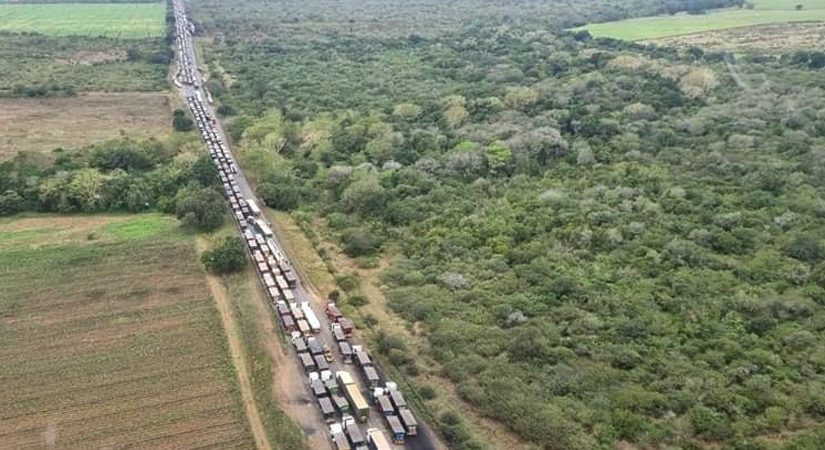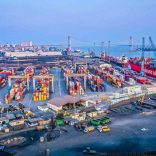Mozambique: Government approves €35,500 for Hulene landfill collapse victims
Average waiting time at SA side of Lebombo-Ressano border skyrockets to 60 hours

The South African side of the Lebombo-Ressano Garcia border has skyrocketed to a whopping 60 hours [Image: Further Africa]
- South Africa regional trade on the verge of collapse
An unprecedented level of inefficiency is threatening the stability of South African borders, casting a shadow over regional trade prospects
The growing inefficiencies within the authorities in charge of the borders pose a significant threat to yet another aspect of the South African economy: regional trade.
The Lebombo border with Mozambique has become a glaring example of this issue, with the lack of coordination and effective communication between these key institutions leading to lengthy delays and bureaucratic bottlenecks.
The repercussions of these delays extend far beyond mere inconvenience, directly impacting the competitiveness and economic growth potential of the entire region. Companies relying on time-sensitive deliveries are experiencing significant financial losses due to delays in processing immigration and customs paperwork. The flow of goods across borders is crucial for sustaining vibrant regional trade, but in recent months, crossing the border between Mozambique and South Africa has been plagued by considerable delays and logistical hurdles.
Among the worst-hit businesses are South African FMCG companies with investments across the border in neighbouring countries. Woolworth, GAME, SPAR, and Shoprite are already witnessing losses in their retail locations due to supply shortages and products expiring in the long queues that now extend over 20 km.
The average waiting time at the South African side of the Lebombo-Ressano Garcia border has skyrocketed to a whopping 60 hours, compared to record lows of just 5 hours earlier this year. This detrimental impact on businesses affects both importers and exporters who heavily rely on efficient border operations to conduct their trade.
The border disruptions also extend beyond the realm of businesses, reaching various municipalities, from the Mozambican border of Ressano Garcia to the town of Malenane. The long queues and resulting traffic jams from idling trucks are significantly disrupting everyday life, making it challenging for people to commute to work and children to attend school.
Drawing lessons from the situation across the border, Mozambique has implemented several measures in the past six months to facilitate and expedite trade and tourism with South Africa. Mozambicans now enjoy 24-hour border access, the elimination of temporary importing permits, regulated transshipment, and a visa waiver program spanning 29 countries – something the South African government has contemplated for over a decade.
It is crucial for South African authorities to realize that the repercussions of this border crisis extend beyond their country alone. Zimbabwe, Malawi, and Zambia heavily rely on South Africa as a gateway for their imports and exports. A breakdown in the fabric of regional trade could lead to severe consequences for these countries, including shortages of essential goods and raw materials, increased inflation, and reduced foreign direct investment, at a time when South Africa is already struggling to maintain its economic sustainability.
Urgent action is required to prevent a bleaker scenario from unfolding. The South African government must demonstrate its commitment to facilitating seamless regional trade by prioritizing border efficiency and investing in the necessary infrastructure and institutional reforms.
In an era where global supply chains are becoming increasingly interconnected, the success of regional trade hinges on countries’ ability to remove barriers and streamline processes. South Africa must rise to the occasion and lead the way in showcasing its commitment to regional economic integration.
By Elizabeth Khumalo













Leave a Reply
Be the First to Comment!
You must be logged in to post a comment.
You must be logged in to post a comment.